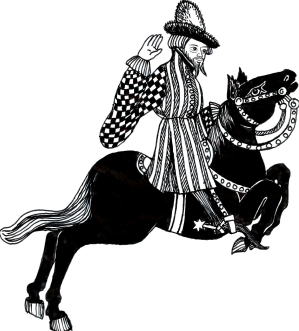
Nottingham University in England has put a “trigger warning” for students enrolled in a learning module about “Chaucer and his Contemporaries c.1380–c.1420” because the studied literature contains “expressions of Christian faith.”
The Mail on Sunday newspaper reportedly revealed the warning after making a freedom of information request to the university.
Geoffrey Chaucer (1343-1400) is one of the most famous writers in English Literature, known for his “The Canterbury Tales.”
An online course description from the university says: “Chaucer dominates our conception of late Middle English literature, but he was of course one among several exceptional writers of his time.
“This module focuses on forty years of writing, to consider whether Chaucer’s concerns with identity and authority, comedy and tragedy, and wit and wisdom are uniquely his, or shared with other writers. In so doing, the module will cover a wide generic range, including romance, dream vision (both mystic and secular), love poetry and lyric.
“By the end of the module, which builds on knowledge and skills delivered in Beginnings of English, students will have developed their confidence in reading and discussing Middle English texts, and be aware of key issues around form, language, and authority and influence.”
In a press release, rights group Christian Concern said the trigger warning concerned “incidences of violence, mental illness and expressions of Christian faith” in the works of Chaucer and medieval literary peers William Langland, John Gower, and Thomas Hoccleve.
The warning reportedly covers the chivalric poem, “Sir Gawain and the Green Knight,” author unknown, containing Christian themes. Another author on the radar of the trigger warning is William Langland, who wrote of “Christian virtue” in his poem, “Piers Plowman.”
Andrea Williams, chief executive of Christian Concern, called the Bible “foundational” in understanding the history of English literature.
“Without an understanding of the Christian faith there will be no way for students to access the world of Chaucer and his contemporaries. It’s ludicrous to issue such trigger warnings.
“From what point in history are we going to censor literary texts given [that] most are steeped in a Christian worldview?
“Trigger warnings for Christian themes in literature are demeaning to the Christian faith and stifle the academic progress of our students.”
Williams expressed concern that censoring expressions of the Christian faith risked erasing literary heritage.
“True education engages and fosters understanding, not avoidance,” she added.
“Our universities should allow students, who have chosen to study some of the greatest works in English literature, the freedom of academic thought to make up their own minds rather than planting loaded warnings about the Christian faith."
Christian Concern stated the issue raised the question as to why trigger warnings were needed at all on classic texts and whether similar warnings would be given by universities for other religious and philosophical beliefs.
Christian Daily International approached the University of Nottingham for a response to the widely reported story and a spokesperson explained the “content notice” [trigger warning] related to specific texts studied in the module, not to Chaucer’s works in their entirety. The module in question looked at one story within The Canterbury Tales, and another unnamed literary work by Chaucer. Eight out of 10 weeks during the module deal with other texts.
That is why, the spokesperson added, sexual and antisemitic themes noted in other works by Chaucer are not included in the content notice, because the themes do not arise within the works studied in the module.
“The University of Nottingham champions diversity, and its student body is made up of people of all faiths and none,” said the spokesperson at the University of Nottingham. “This content notice does not assume that all our students come from a Christian background, but even those students who are practising Christians will find aspects of the late-medieval worldview they will encounter in Chaucer and others alienating and strange.
“All students may appreciate knowing in advance about some perspectives that will be covered, for example, the anti-Islamic sentiments of some medieval writers. This content notice does not discourage students from encountering any of this material, but enables questions to be raised, so as to set that material in a properly critical framework."
The religious aspects of Chaucer’s writings have been a topical matter for debates between academics.
In the abstract to his book, “Geoffrey Chaucer: A Very Short Introduction,” pub. 2019, David Wallace, the Judith Rodin Professor of English & Comparative Literature, University of Pennsylvania, called it “no simple matter to access Chaucer’s religion.”
“We are separated from Chaucer not just by the Reformation, but by the Counter-Reformation too,” Wallace wrote. “The range of Christian belief expressed by Chaucer’s pilgrims [in The Canterbury Tales] is remarkably broad, ranging from the orthodox perfectionism embraced by the professional religious, such as the nuns, to its explicit rejection by the Wife of Bath, and others.”





